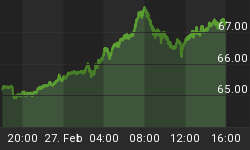Russian regulators have threatened Google with slowing down the company's traffic in the country if it failed to delete prohibited content. Russian media reported on Tuesday that for now the company has been fined $54,000 over its failure to delete content in question, which the Russian authorities see as illegal.
Russia’s media watchdog Roskomnadzor has given Google 24 hours to remove videos it says relate to drugs, violence, and extremism, without detailing about it, at least to the public.
The agency also accused Google of restricting access to YouTube, owned by Google, to Russian media outlets, including RT and Sputnik, and for supporting what it called “extremist organizations”. We will get back to “extremists” in a bit.
Last December, Russian authorities passed a law that gives power to Roskomnadzor to fine platforms that do not delete banned content and to control their internet traffic.
Roskomnadzor said that unless Google deletes the problematic content, it could also slow down internet speeds for users in Russia trying to access Google.
The country has already used these powers in March when it placed a punitive slowdown on Twitter after Roskomnadzor said it failed to remove around 3,000 posts.
It has also threatened to block Twitter from RuNet completely, unless the social network starts cooperating with the Russian authorities.
In March, Russia accused Facebook of violating citizens’ rights after the social media giant blocked access to content posted by TASS news agency.
The recent pressure on Western tech giants is part of the Russian authorities’ campaign to beef up what it calls its internet “sovereignty”. However, what is sovereignty and safety for one, is censorship for another.
Last month, Google filed its lawsuit against Roskomnadzor over the demands to remove banned content. The lawsuit concerned dozens of YouTube links to “unlawful content” which involved encouraging minors to join unsanctioned protests.
In January, people across Russia took to the streets to support jailed Kremlin critic Alexei Navalny. His supporters have used YouTube to criticize the government and widely to air graft to organize their activities.
During the rallies over Navalny’s detention, Roskomnadzor warned Twitter, TikTok, Facebook and other sites that fines would be imposed if posts urging young people to protest were not deleted.
In April, a Moscow court fined Tik-Tok after it failed to delete content related to illegal protests.
However, even before the Navalny-related protests, Russia was increasing efforts to tighten control on online platforms such as Facebook, Twitter and YouTube, with President Vladimir Putin saying the companies had become too influential.
In December 2019, Russian authorities said to have successfully implemented its so-called digital sovereignty bill, aimed at protecting the country by creating a sustainable, fenced-off national network, and successfully tested it, too.
Prior to that, they passed the Digital Economy National Program law, which requires Russia's internet providers to ensure that they can operate in the event of foreign powers acting to isolate the country online.
The measures outlined in the law include Russia building its own version of the net's address system, known as DNS. The bill would require Internet providers to make sure they can operate if foreign countries attempt to isolate the RuNet, the country's national internet infrastructure.
Currently, a dozen organizations oversee the root servers for DNS and none is in Russia. The government says the bill will reduce Russia's reliance on internet servers in the United States.
















